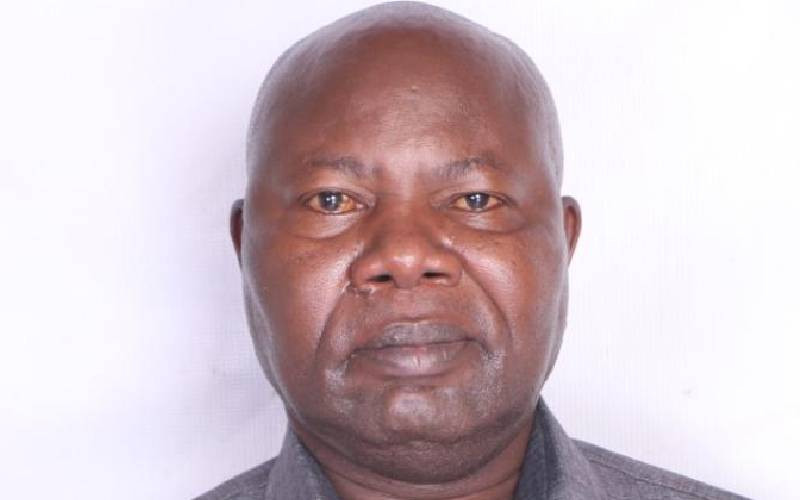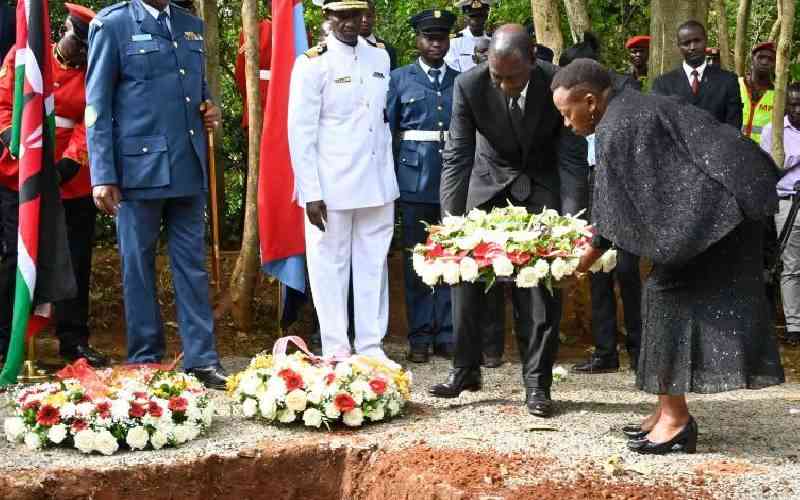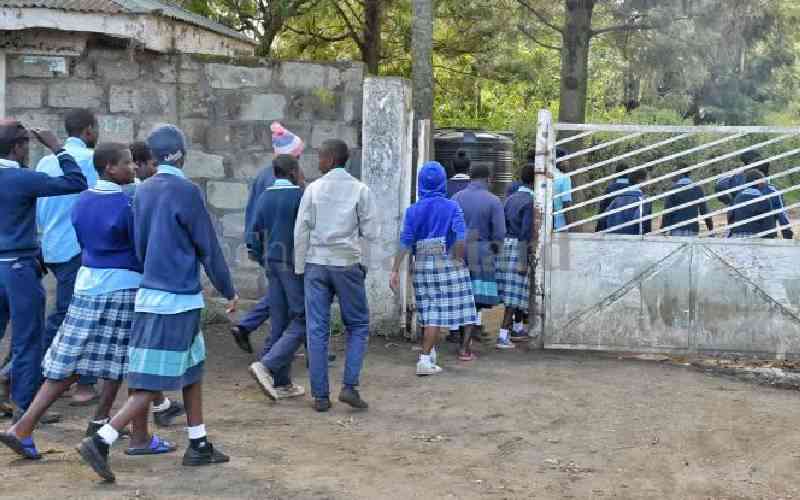The Government should make secondary education free for all children starting next year, the education task force has said.
The report says realisation of this goal is possible by 2015 if a raft of progressive recommendations it has listed are adopted.
President Uhuru Kenyatta has, however, expressed his government’s commitment to achieving free secondary education by 2017.
The team says financing secondary education will be a challenge in the coming years and also proposes adoption of cost cutting measures to make education free.
It proposes that the Government should sell all unclaimed assets and make use of the frozen cash to finance secondary education.
It also advises that all unspent ministries budgets be transferred to free secondary education kitty at the end of each financial year.
The team also says the Government should allow private investors to set up and run secondary schools to ease pressure of admission to public schools.
“The Government should encourage participation of private sector in provision of education including awarding bursaries or scholarships, infrastructure development, instructional materials and laboratory equipment,” says the report. It also recommends introduction of an education levy on a number of items to raise funds that would enable the Government realise its statutory obligation of providing free and compulsory education.’
The Government must also regulate the establishment of new schools and only match the construction of additional ones to the demand and population projections.
The Kilemi Mwiria-led team projects that a major increase in students population will be experienced between 2014 and 2017. “The policy target of increasing the gross enrollment rate to over 65 per cent will see a rise from 2.3 million students in 2014 to 2.5 million in 2017,” reads the report.
TAX WAVER
It also says the secondary school age population (14-17 years) is expected to rise from 3.5 million in 2014 to about 3.6 million in 2017. The team also proposes a tax waiver on all school equipment and instructional materials to reduce the cost of education.
The report also wants an inter-ministerial collaboration that would result into reduction of costs through low charges and tax waivers for goods and services from Government institutions. For instance, the team says the Energy Ministry can reduce the cost of electricity in schools as The Treasury waives tax on goods and services including foodstuff.
It also says the Ministry of Information Technology can partner with schools for affordable internet services as that of agriculture supports schools’ farms.
And to implement this, the team has proposed setting up of an independent authority to coordinate and implement tuition free secondary education.
Stay informed. Subscribe to our newsletter
The Government capitation should also be increased and a thorough revision of expenditures vote will also ensure free education by next year. “It should also promote the use of Information and Communication Technology to deliver education content,” says the report.
 The Standard Group Plc is a
multi-media organization with investments in media platforms spanning newspaper
print operations, television, radio broadcasting, digital and online services. The
Standard Group is recognized as a leading multi-media house in Kenya with a key
influence in matters of national and international interest.
The Standard Group Plc is a
multi-media organization with investments in media platforms spanning newspaper
print operations, television, radio broadcasting, digital and online services. The
Standard Group is recognized as a leading multi-media house in Kenya with a key
influence in matters of national and international interest.
 The Standard Group Plc is a
multi-media organization with investments in media platforms spanning newspaper
print operations, television, radio broadcasting, digital and online services. The
Standard Group is recognized as a leading multi-media house in Kenya with a key
influence in matters of national and international interest.
The Standard Group Plc is a
multi-media organization with investments in media platforms spanning newspaper
print operations, television, radio broadcasting, digital and online services. The
Standard Group is recognized as a leading multi-media house in Kenya with a key
influence in matters of national and international interest.









